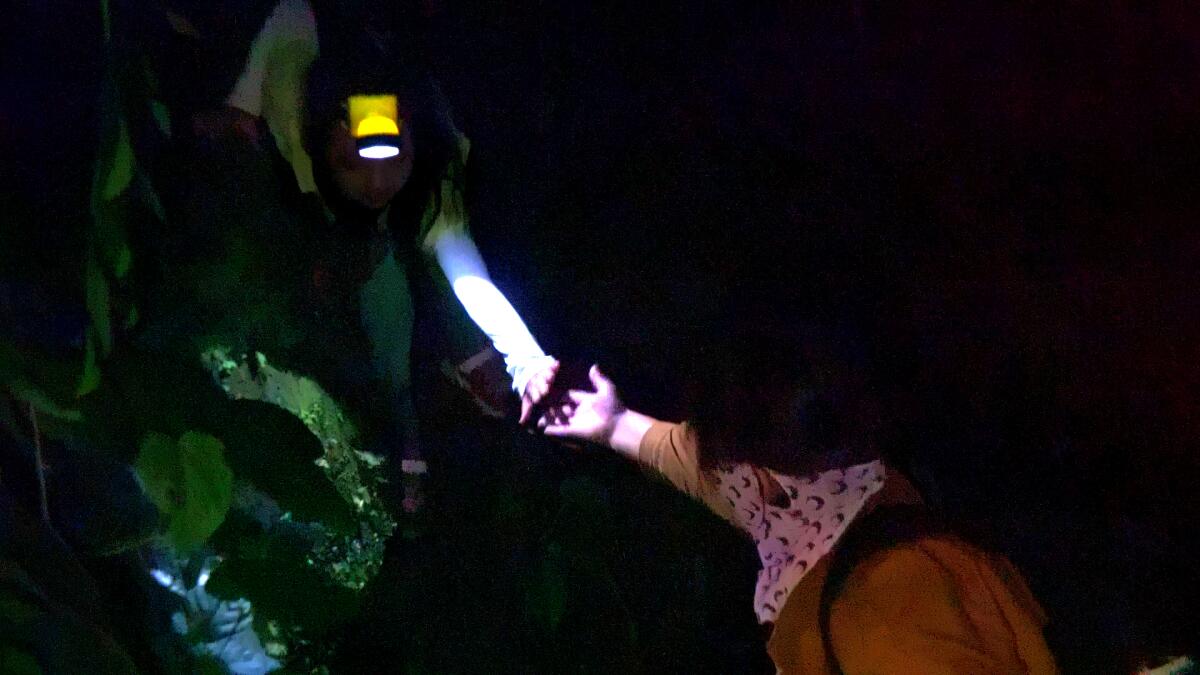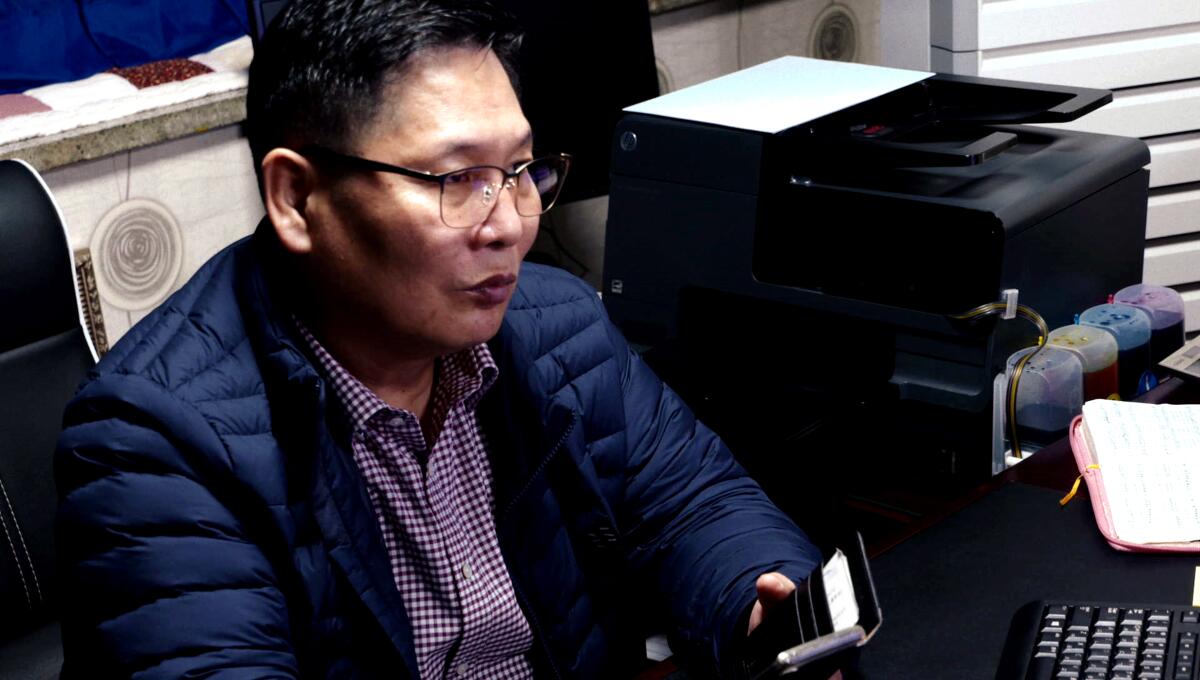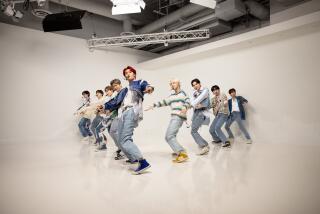Review: In ‘Beyond Utopia,’ the weight of North Korean oppression on its citizenry is undeniable

- Share via
The world’s bad-actor states are well-known from the worrying news they regularly produce. But only North Korea’s brand of isolated, propaganda-fueled tyranny seems to inspire reportage steeped in the weird — thanks in part to the dangerous whims of its current leader and the coddling by America’s former president.
Enter documentarian Madeleine Gavin’s urgent dispatch “Beyond Utopia,” a reminder that people’s lives there are continuously at risk. It puts us right in the heart of a perilous attempt in 2019 by a North Korean family of five, and separately a teenage boy with a mother in Seoul, to flee Kim Jong Un’s oppressive rule. Guiding their efforts is a dedicated pastor in South Korea with extensive contacts in the Underground Railroad for defectors, plus his own scars from years of this hazardous work.
Between the in-the-moment tension and glimpses at the reality inside a hidden regime (footage was covertly shot with smuggled-in cameras), the film makes for a blistering, wrenching counterpoint to any narrative of North Korea that foregrounds the bizarre at the expense of the citizens suffering. Documentaries with life-or-death stakes, not to mention wider resonance in our increasingly unsettled geopolitical world, don’t get much more nerve-racking or heartbreaking than “Beyond Utopia.” At the same time, the film is inspiring about the lengths people will go to for a better life.
The Rohs — a husband and wife, their two small children, and an elderly grandmother — had been wandering for five days on Changbai Mountain just across the vigorously patrolled Yalu River that separates China and North Korea, when a farmer’s smartphone video of the desperate-looking family made its way to pastor Seungeun Kim in Seoul. The filmmakers had been gaining Kim’s trust for a separate North Korea-themed project when he gave them permission to film as he commandeered the Rohs’ journey, and also strived to help a woman named Soyeon Lee get her teenage son out.

Crossing that river border, we learn, is only the start of the danger: the pathway requires traversing the length of China, crossing Vietnam and Laos, before real safety is achieved by entering Thailand. At any point before then, authorities could catch the Rohs and deport them back to a North Korea brutally vengeful toward defectors. That picture of the dictatorship’s treatment of the disloyal, as detailed by interviews with experts including U.S. official Sue Mi Terry, author Barbara Demick and defector-activist Hyeonseo Lee, is more chilling than you can imagine.
Following the Rohs’ progress (which includes a separate harrowing nighttime river crossing on the Mekong in a crowded, unstable boat) and anxious mother Soyeon’s entirely different struggle tracking her son matches the rough emotional intensity of a Barbara Kopple immersion doc crossed with a Paul Greengrass thriller. Its power is further burnished by Gavin’s portrait of the determined, devout rescuer at its center, Kim, a genuine hero who can somehow compartmentalize his own life’s joys, sorrows and threats to be a steady beacon for the North Koreans who contact him. In this pastor’s poise and practicality, the sturdy righteousness of his calling makes for a fascinating contrast with the impenetrable martyrdom shown in another grimly compelling work of nonfiction from this season, “The Mission.” (Clearly not all faith-fueled devotions are equal in their worthiness or risk).
But plan your double-feature wisely, doc lovers — when it comes to your tolerance for throat-tightening material, your mileage may vary. Know that “Beyond Utopia” is ultimately more than the cruel sum of its participants’ ills and the turbulence they’re willing to endure. Its engine is one of hope and belief, against all odds, that the impasse between mass indoctrination and an open society can be bridged, and that the desires and fears of everyday people who suffer the actions of a powerful few shouldn’t be ignored.
'Beyond Utopia'
In Korean and English, with English subtitles
Rating: PG-13, for thematic material, violent content and disturbing images
Running time: 1 hour, 55 minutes
Playing: Now at Lumiere Cinema, Laemmle NoHo 7, Laemmle Town Center 5, Laemmle Monica
More to Read
Only good movies
Get the Indie Focus newsletter, Mark Olsen's weekly guide to the world of cinema.
You may occasionally receive promotional content from the Los Angeles Times.










